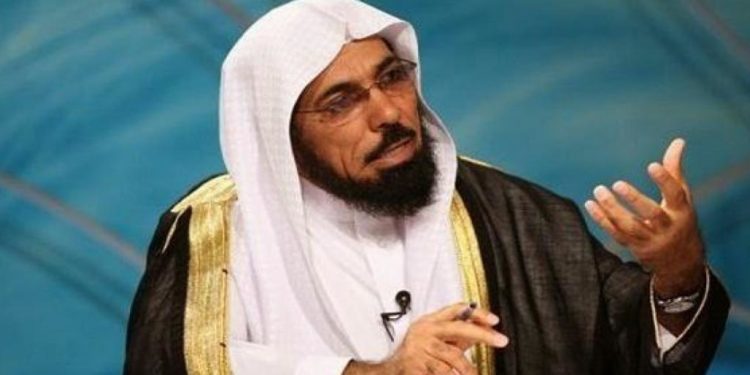
International human rights demands have escalated to rescue the famous preacher Salman al-Awda from the prisons of the Saudi regime under the repeated threat of his execution.
Lynn Maalouf, Amnesty International’s Middle East Research Director, said: “We are gravely concerned that Sheikh Salman al-Awda could be sentenced to death and executed. Since his arrest almost two years ago, Sheikh al-Awda has gone through a terrible ordeal including prolonged pre-trial detention, months of solitary confinement, incommunicado detention, and other ill-treatment – all flagrant violations to his right to a fair trial.”
She added, “Instead of moving ahead with this sham trial, they must immediately and unconditionally release Sheikh al-Awda and drop all charges against him.”
“Sheikh al-Awda has been calling for a more inclusive society that would end the marginalization of Saudi Shi’a citizens. For this, he is being punished. In the same way, women and advocates of women’s rights who have called for greater rights, are similarly being punished,” Maalouf said.
The statement came in response to the Saudi prosecutor’s request to execute al-Awda, ahead of his scheduled trial before the Counter-Terrorism Court, known as the Specialized Criminal Court, on Sunday.
“After four days (Sunday), my father’s secret trial, in which the Saudi prosecutor is demanding his death, will be based on 37 loose charges,” said al-Aswad’s son.
The Saudi regime in 2017 arrested prominent advocates and activists in the country, most notably al-Awda, Owad al-Qarni and Ali al-Omari, amid demands from personalities and international and Islamic organizations for their release.
A few weeks ago there were reports of the authorities’ intention to issue and execute the execution of the three preachers shortly after the end of Ramadan.
Al-Awda was detained incommunicado, in solitary confinement for the first five months of his detention, and was not allowed to contact his family or lawyer, except for one short phone call a month after his arrest.
In January 2018, he was taken to hospital for deteriorating health. He was only allowed to contact his family after a month.
In August 2018, Sheikh Salman returned to court in a secret session, where he was charged with 37 counts, including belonging to the Muslim Brotherhood, calling for reforms in the government and “regime change” in the Arab region. In May 2019, he was brought to another trial in a secret session, after which his lawyer informed the family that the prosecutor had requested the death penalty.
For more than two years, the Saudi authorities have been waging massive security campaigns and arrests targeting even Arab communities, including Palestinians, Jordanians, Syrians and African communities inside the kingdom, some of whom have yet to be identified.
The arrests included hundreds of Saudi activists, lawyers, journalists, writers and preachers who apparently tried to express their opinion, which opposes changes in Saudi Arabia, amid human rights demands to reveal their fate and bring justice to them.
Amnesty International opposes the death penalty in all cases without exception, regardless of the nature of the crime, the characteristics of the offender, or the manner in which the State uses the death penalty. The death penalty is a violation of the right to life and constitutes a cruel, inhuman and degrading punishment.